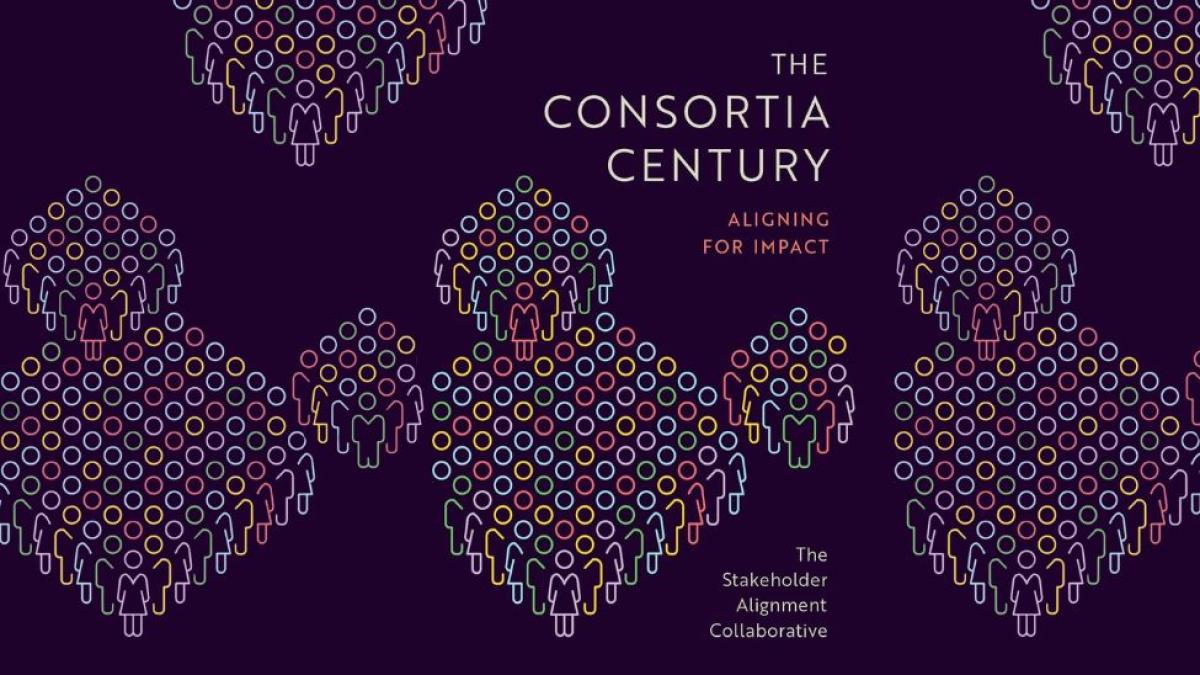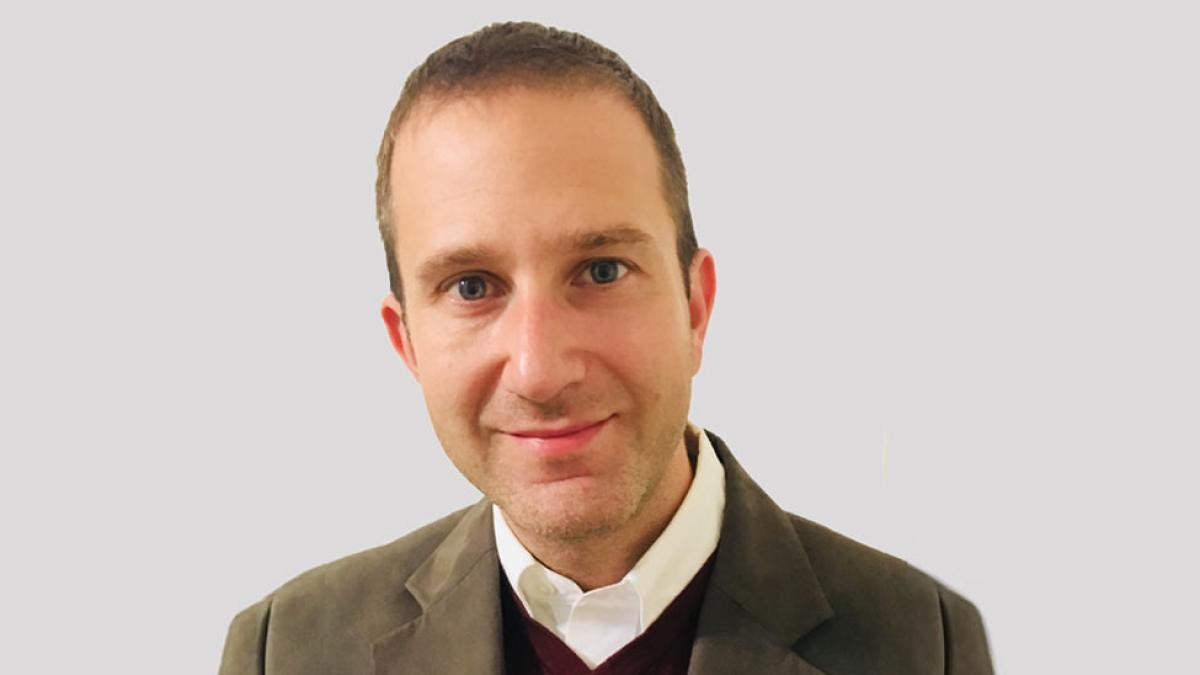The Elisabeth Haub School of Law at Pace University’s Trial Advocacy Team recently competed in the prestigious IBA International Criminal Court Moot Court Competition (IBA ICCMCC) held in the Hague.
Crimes, Coffee, and Consequences with Cathryn Lavery
Professor Lavery, host of the podcast Crimes, Coffee, and Consequences, discusses the intersection of mental health and the criminal justice system with Adjunct Instructor Florence Maroney, LMHC.
Board Celebrates Caribbean American Heritage Month
Elisabeth Haub School of Law Dean Horace Anderson is honored in the Yonkers Times for his leadership during Caribbean American Heritage Month.
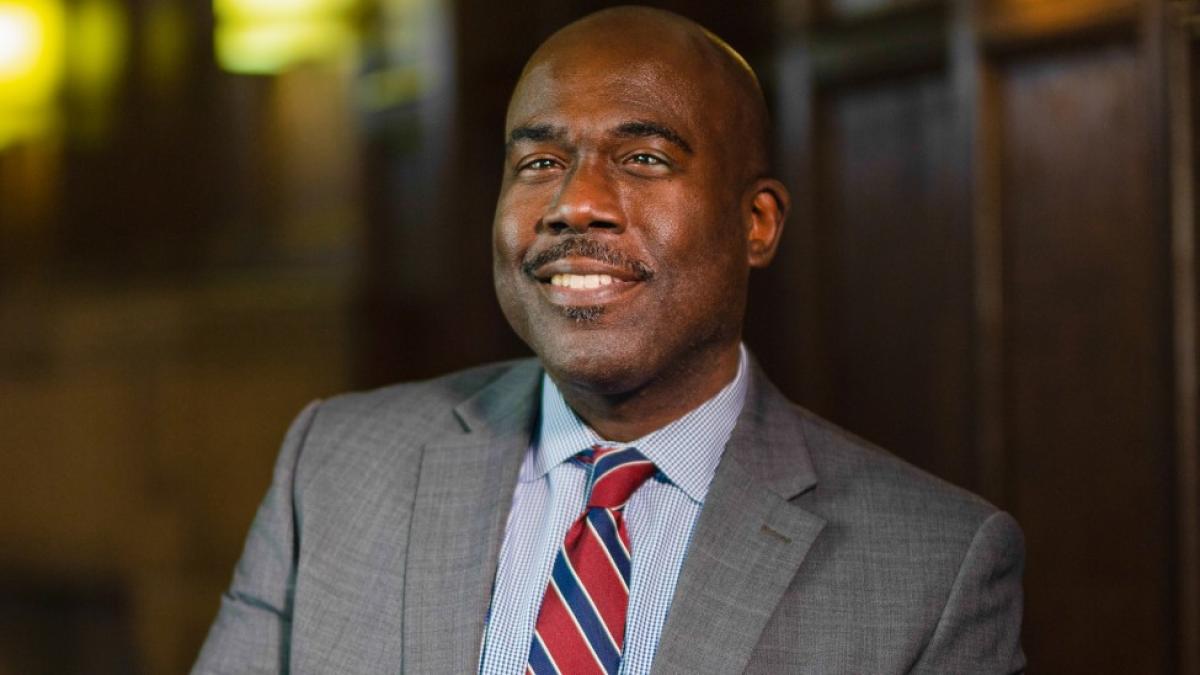
Why We Need Criminal Justice Majors More Than Ever: Navigating Divisiveness, Burnout, and the System’s Complexities
In her latest piece, Cathryn Lavery, PhD, Chair & Graduate Director of Criminal Justice & Security at Pace University, evaluator, trainer, and commentator—explores the urgent need for a new generation of justice professionals. With rising public sector burnout, complex system demands, and growing societal divides, Dr. Lavery unpacks why today’s criminal justice majors are more essential than ever—and how their education must evolve to meet the moment.
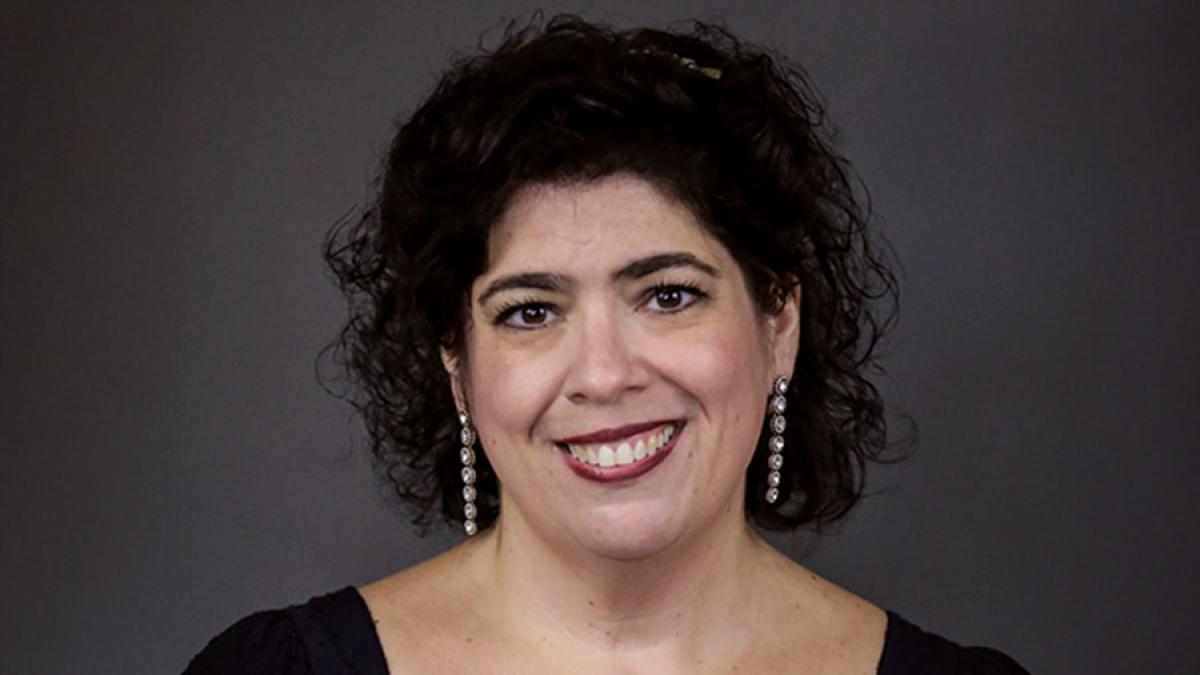
Early Voting In NYC Mayor's Race Doubles From 2021. Young People Are Driving The Trend.
Political Science Professor Laura Tamman offers expert analysis to Gothamist on New York City’s early mayoral primary turnout—highlighting its record-setting numbers and implications for younger voters’ political power.
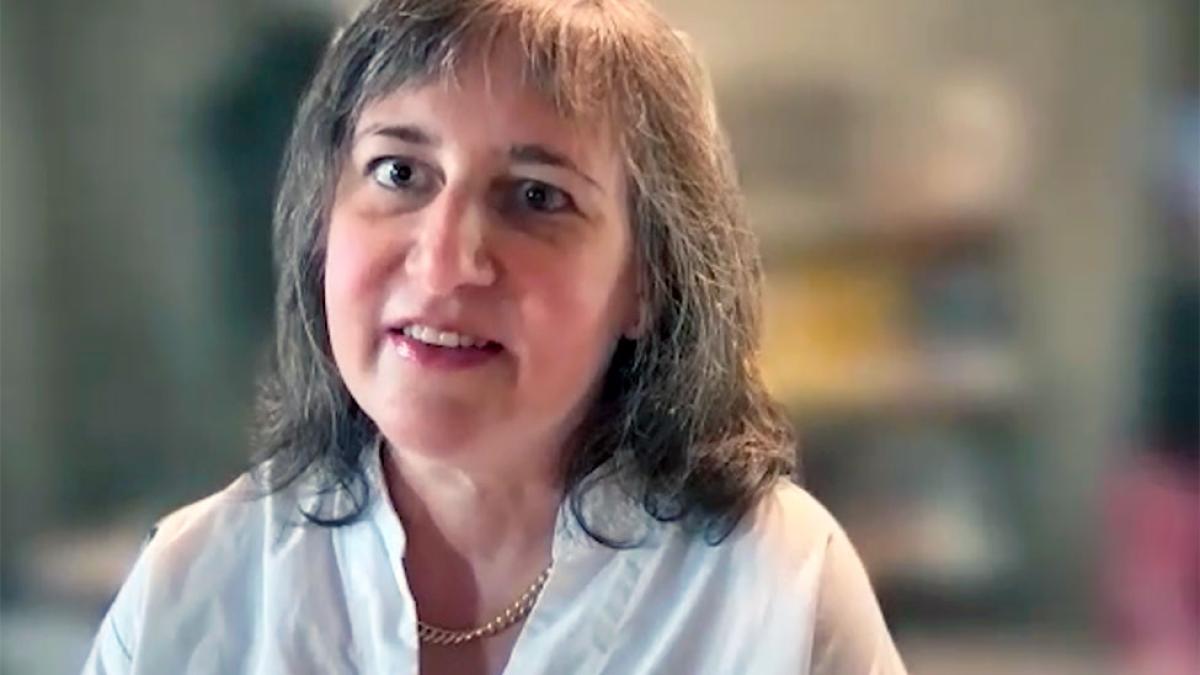
Press Release: Pace University President Marvin Krislov Joins NYS Higher Education Services Corporation Board of Trustees
Pace University President Marvin Krislov has been appointed by New York Gov. Kathy Hochul and confirmed by the New York State Senate to serve on the Board of Trustees of the New York State Higher Education Services Corporation (HESC), the state’s higher education student financial aid agency. The appointment reflects Pace University’s commitment to expanding college access and affordability for students across New York.
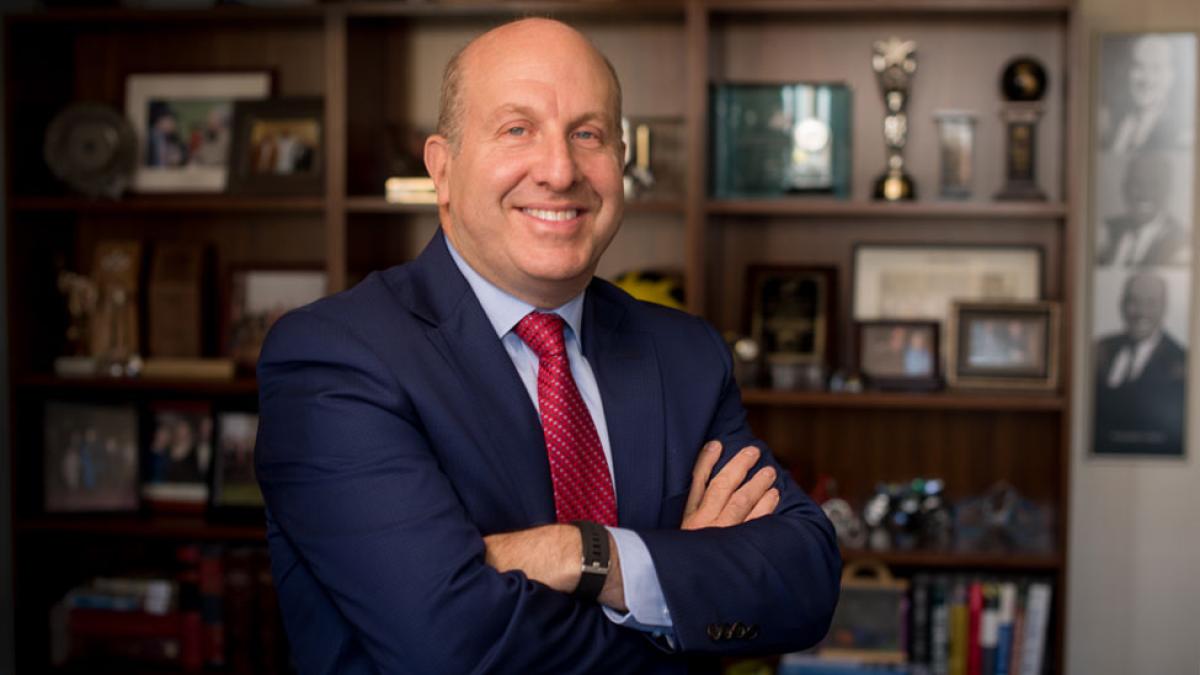
Appointed by New York Gov. Kathy Hochul, President Krislov will help expand college access and affordability statewide
Pace University President Marvin Krislov has been appointed by New York Gov. Kathy Hochul and confirmed by the New York State Senate to serve on the Board of Trustees of the New York State Higher Education Services Corporation (HESC), the state’s higher education student financial aid agency. The appointment reflects Pace University’s commitment to expanding college access and affordability for students across New York.
HESC awards nearly $1 billion in financial aid to more than 330,000 students each year. HESC helps New Yorkers attain their higher education through the administration of programs such as New York’s Tuition Assistance Program (TAP), Veterans Tuition Awards, as well as financial aid outreach and education programs for students and families.
“Higher education is one of the most powerful forces for equity and mobility—but only if it is accessible to all,” said President Krislov. “Financial aid makes that opportunity real. I’m honored by Governor Hochul’s appointment and look forward to serving on the HESC Board to help expand access to higher education for students and families across New York—and to ensure that no one is held back by financial barriers.”
Pace University has long been a leader in promoting educational access and economic mobility. Ninety-eight percent of first-year students receive financial aid, and the University awarded more than $424 million in financial aid, scholarships, and institutional support during the 2023–2024 award year.
In announcing a series of appointments and confirmations across New York State, Gov. Hochul said: “New Yorkers deserve to be served by our state’s best and brightest.”
“These dedicated public servants are leaders in their fields and have made countless contributions to their local communities,” she said. “I am confident they will now use their many talents to benefit residents across the state.”
The average annual institutional aid offered to new undergraduate students is currently $30,400. Pace is ranked among the top 10 percent of private U.S. colleges that provide the best return on tuition investment and in the top 11 percent of U.S. colleges with the highest-earning alumni, according to PayScale—underscoring the long-term value of a Pace education.
Krislov has served as president of Pace University since 2017. He is deeply committed to Pace’s mission ofOpportunitas—providing all students, regardless of economic background, access to the transformative power of education. Under his leadership, Pace is developing innovative new interdisciplinary programs, continuing the transformation of its New York City Campus, and delivering on an experiential education model that produces superior career outcomes. He is personally committed to initiatives supporting student mental health and wellbeing, ensuring college access for all students, and advancing priorities for diversity, equity, inclusion, and belonging.
Before coming to Pace, Krislov spent 10 years as the president of Oberlin College. Earlier, he was vice president and general counsel at the University of Michigan, where he led the legal defense of the University’s admission policies that resulted in the 2003 Supreme Court decision recognizing the importance of student body diversity.
Prior to entering academic life, he served as associate counsel in the Office of Counsel to the President under President Bill Clinton and later as acting solicitor and then deputy solicitor of national operations in the US Department of Labor. In 2009, President Barack Obama nominated, and the Senate confirmed, Krislov to serve on the National Council on the Humanities, where served until the summer of 2019.
Krislov earned a bachelor’s degree, summa cum laude, at Yale University in 1982, and he was named a Rhodes Scholar. He earned master’s degrees at Oxford University and Yale and a juris doctor degree at Yale Law School in 1988.
About Pace University
Since 1906, Pace University has been transforming the lives of its diverse students—academically, professionally, and socioeconomically. With campuses in New York City and Westchester County, Pace offers bachelor, master, and doctoral degree programs to 13,600 students in its College of Health Professions, Dyson College of Arts and Sciences, Elisabeth Haub School of Law, Lubin School of Business, Sands College of Performing Arts, School of Education, and Seidenberg School of Computer Science and Information Systems.
Pace University Awarded $300K Teagle Foundation Grant to Launch NYC Civic Fellowship
- Read more about Pace University Awarded $300K Teagle Foundation Grant to Launch NYC Civic Fellowship
Pace has been awarded a $300K Teagle Foundation grant to launch The City and the Sea, a new fellowship for students who aspire to serve the people of NYC by working in government or nonprofit organizations. Through coursework pairing a transformative text humanities education with hands-on internships, fellows will dive into the life of New York Harbor and the future of our city.


Pace University has received a $300,000 three-year implementation grant from the Teagle Foundation to launch The City and the Sea: A New York City Fellowship in Civics and Public Service, a new initiative that prepares undergraduates to become civic leaders in New York City.
The new funding builds on a $25,000 planning grant awarded in 2024 and supports the launch of the program, which pairs transformative classroom learning with paid experiential opportunities in New York City public service. Anchored at Pace’s New York City Campus, The City and the Sea is designed to develop a sense of place for students in the Lower Manhattan context of Pace University’s campus, especially as it relates to the water and the waterfront environment.
Beginning in Fall 2025, the fellowship will welcome its first cohort of 10 undergraduate students. The program includes a two-semester academic sequence covering the topics of city politics and policy, and civic leadership and engagement in the context of New York City’s land, coastal and oceanfront governance. This will allow students to learn about the city’s history and theoretical foundations as well as its government, governance, and service delivery - and the ways that they can influence decisions about their local communities. Following these two courses, students will complete summer internships that allow them to practice their civic leadership and engagement skills. Throughout the fellowship, students will engage in immersive, hands-on experiences that are central to Pace’s commitment to learning for real life.
“This fellowship will provide our students a platform for intellectual exploration founded in required reading of transformative historical texts, while developing their understanding of the city around them” said Rebecca Tekula, PhD, principal investigator and executive director of Pace’s Wilson Center. “This particular theme will allow our team to explore with students the question of what it means to be civically engaged in the community where you live, while drawing upon our deep ties to our neighborhood organizations and agencies.”
Housed in the Helene T. and Grant M. Wilson Center for Social Entrepreneurship in the Office of the Provost, the program represents a strategic investment in public service education and reaffirms Pace University’s role as a forward-looking institution embedded in the life of New York City.
Pace students interested in this unique opportunity can reach out to wilsoncenter@pace.edu for more information.
More from Pace
Seidenberg School of Computer Science and Information Systems Professor Namchul Shin has co-authored a new book published by Oxford University Press that offers a timely, forward-looking exploration of institutional collaboration in the 21st century.
In his article, The 'Realness' Key to Compelled Passcode Production, published in the Journal of Criminal Law & Criminology (Vol. 115, 2025), Pace Haub Law Visiting Assistant Professor Gabriel Pell offers a novel framework for applying the Fifth Amendment’s Foregone Conclusion exception to compelled passcode entry.
How Digital Universities Can Help Higher Ed Embrace Change
Pace President Marvin Krislov writes a piece in Forbes reflecting on lessons from the Digital Universities US 2025 conference, where he underscores that digital transformation in higher education is about more than adopting tools—it’s about reimagining how colleges teach, support, and prepare students for an evolving future.
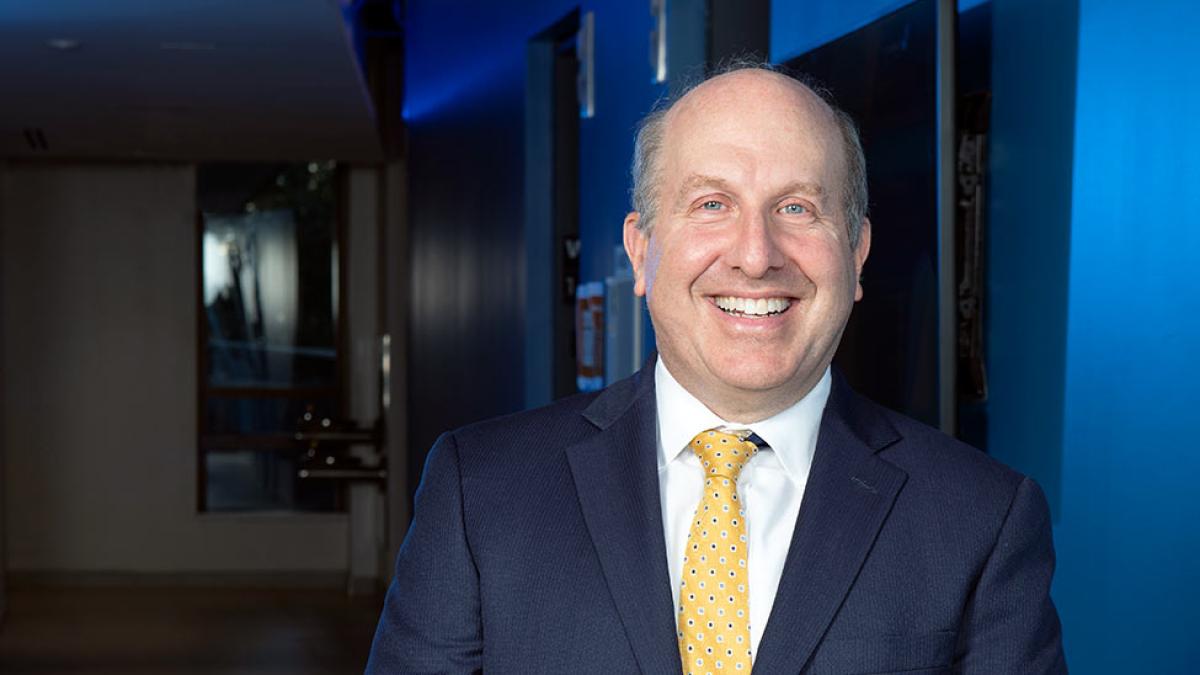
Pace Students Attend Games for Change Festival
When it comes to unwinding, gaming is often at the top of the list of go-to methods–but for Pace students, especially Seidenberg technology students, it’s a lifestyle. When a group of gaming and computer science students attended the Games for Change Festival, there was plenty to get excited about.
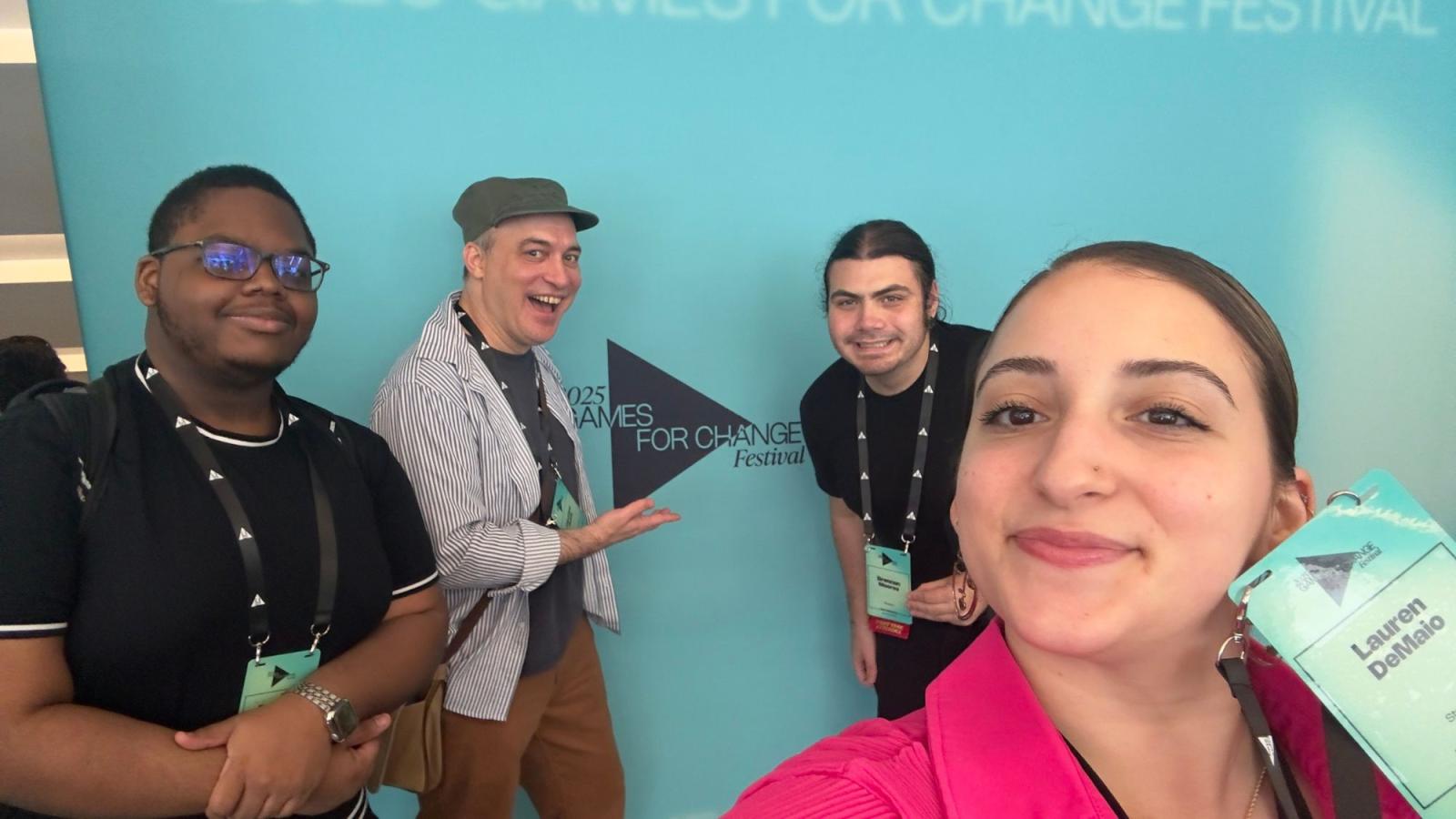
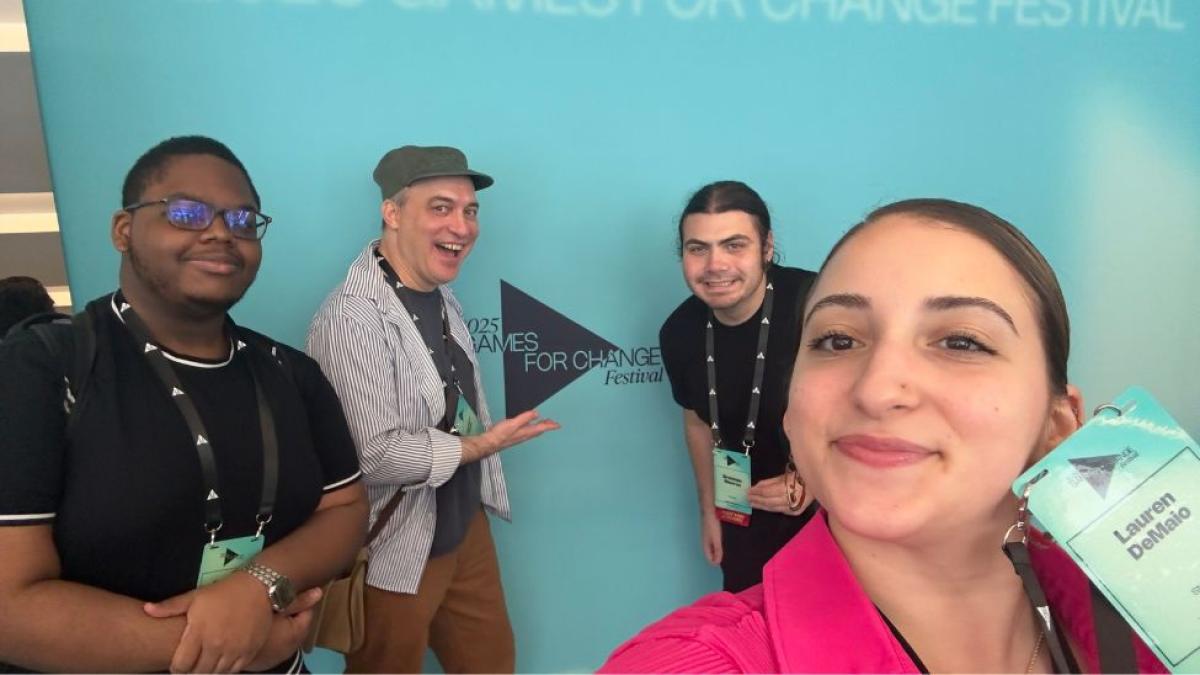
When it comes to unwinding, gaming is often at the top of the list of go-to methods–but for Pace students, especially Seidenberg technology students, it’s a lifestyle.
Finding ways to power up the impact of gaming on wellbeing has enduring appeal, so when a group of gaming and computer science students attended the Games for Change Festival, held at The New School in NYC, there was plenty to get excited about.
The festival was packed with high profile speakers, including Allison Matthews, Head of Minecraft Education at Microsoft; Deepak Chopra, prolific wellness and spirituality author and founder of Cyberhuman.ai; and Eric Monacelli, Executive Producer at Marvel Games.
"Games for Change was an insightful experience showcasing the connection between Game Development and social impact,” said Brennan Moore, a BA in Computer Science student.
It was empowering to connect with others who believe in this medium for a better future.
Seidenberg students Lauren DeMaio, Kerisa Williams, Donovan Lane, and Brennan Moores represented Pace University alongside Professor Carmine Guida, program director of Pace University’s BS in Game Development program.
The sessions covered a variety of topics, including bringing mindfulness and wellbeing into games, leveling up mental health, how games are used to improve education and career outcomes, and the ways in which GenAI is being used to create new ways to play.
Attending conferences is a powerful part of the student experience at Pace University. Seidenberg students frequently attend national and international conferences, including research-based conferences as well as events like the Grace Hopper Celebration for Women in Technology, AfroTech, DefCon, and more.
"Bringing students to a conference was an excellent opportunity for them to get inspired and do some networking with different game companies,” said Professor Guida.
Conferences offer the opportunity to expand horizons and bring new learning into your craft–how these students will incorporate wellbeing concepts into their games will form part of a new movement in mental health tech.
Pace Haub Law Trial Advocacy Team Competes in Prestigious ICC Moot Court Competition in The Hague
The Elisabeth Haub School of Law at Pace University’s Trial Advocacy Team recently competed in the prestigious IBA International Criminal Court Moot Court Competition (IBA ICCMCC) held in the Hague.
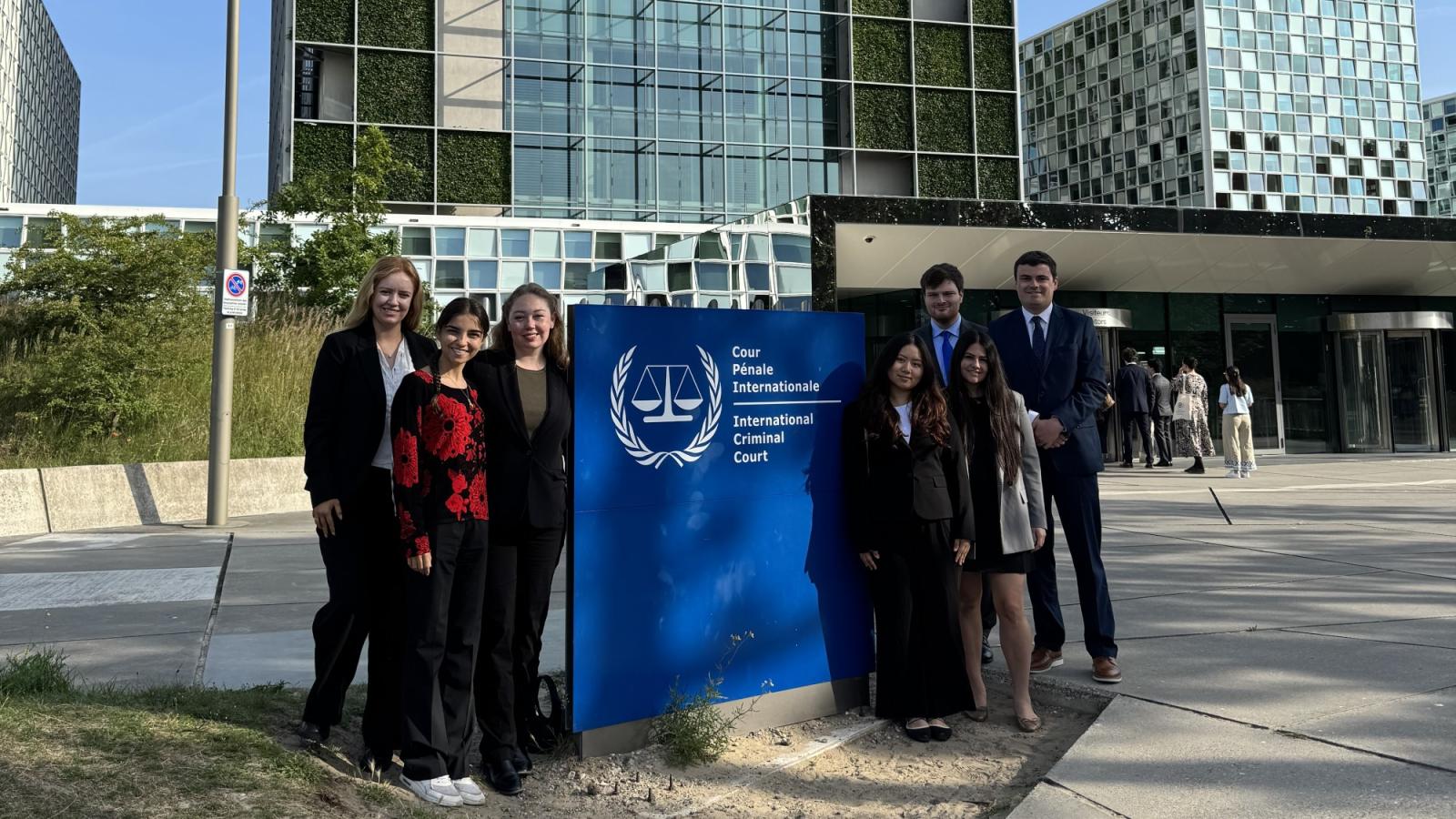
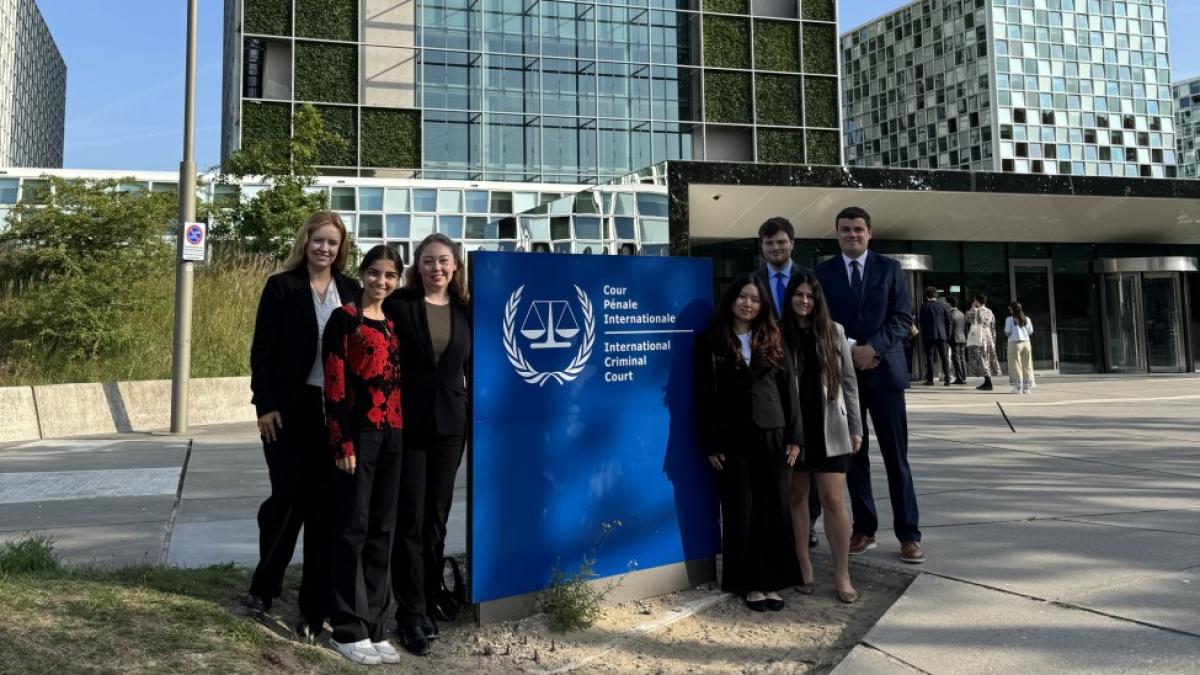
The Elisabeth Haub School of Law at Pace University’s Trial Advocacy Team recently competed in the prestigious IBA International Criminal Court Moot Court Competition (IBA ICCMCC) held in the Hague. This remarkable accomplishment comes after the team qualified as a finalist in March during the 2025 Regional Round for the Americas and the Caribbean of the International Criminal Court Moot Court Competition (ICC Moot). The impressive Law School Trial Advocacy Team included Priscilla Holloway, Sophie Bacas, Tenzin Lhamo, Victoria Perretti, and Jacob Cannon; the team was coached by Brad Gorson ‘13, Stephanie Areford ‘24, and David Anderson.
Pace Haub Law enjoys a strong history with the ICC Moot as it was first organized in 2004 by Professors Emeritus Gayl S. Westerman and Matthew E. Brotmann. At the time, the moot was the world’s only moot court competition based on the law and procedures of the newly created ICC, the first permanent international tribunal dedicated to the prosecution of international criminal offenses. Since 2004, the International Criminal Court (ICC) has grown, and the Competition has grown with it. In 2014, Pace Haub Law partnered with the International Criminal Court and the Grotius Centre for International Legal Studies, Leiden University to create a global competition, the ICC Moot Court Competition, which is held annually in The Hague, Netherlands, with the final round judged at the ICC itself by ICC judges and legal officers. More recently, in 2017, the ICC Moot started its collaboration with the International Bar Association (IBA), and in 2020 the IBA became a name partner in the Competition. Each year, the qualifying rounds are hosted on the Pace Haub Law campus. This year marks the first time in 12 years that the Law School sent a team to continue to compete in the Competition in the Hague. Pace Haub Law Professor Alexander K.A. Greenawalt serves as faculty director of the Moot.
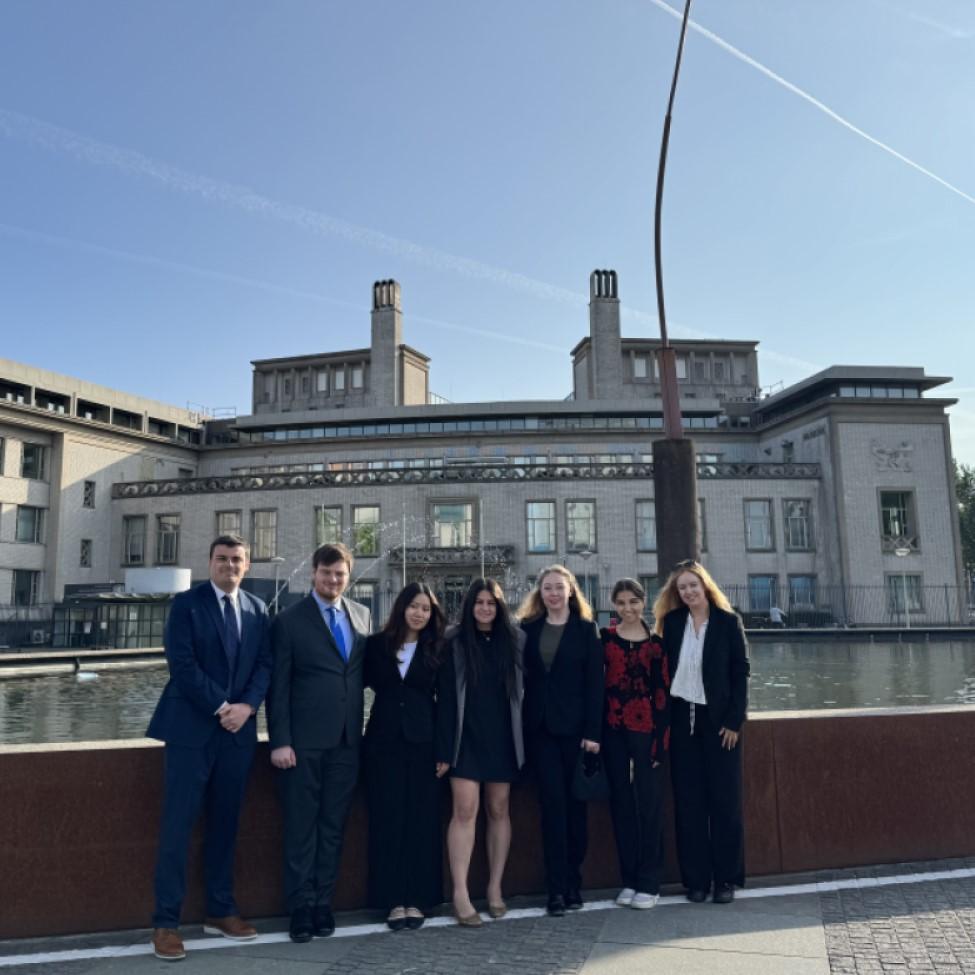
“This was an incredible opportunity for our Law School and its student advocates,” said Coach Brad Gorson ’13. “This year’s Trial Advocacy Team who traveled to the Hague to compete dedicated months of hard work and preparation in advance of the Competition. On behalf of all of the coaches, we are beyond proud of the work our team put in to get to the Hague and showcase the strength of the Pace Haub Law Advocacy Program.” The Elisabeth Haub School of Law at Pace University is home to a top ranked trial advocacy program. In 2025, it was ranked #19 in the nation by U.S. News & World Report.
“The Competition was an incredible experience,” shared recent graduate Priscilla Holloway, who competed on the team as a 3L. “We were brought face-to-face with some of the world’s most talented law student advocates. We argued against teams from Cambodia, Kenya, Ghana, China, Nigeria, India, Bangladesh, and the Philippines, each bringing their own legal traditions and perspectives to the courtroom. It was a transformative experience.”
The experience taught us that international criminal law isn't just about abstract legal principles—it's about grappling with humanity's worst impulses while striving to build systems of accountability that can transcend national boundaries.
Priscilla continued, “What struck me most about the competition was how it illustrated the real-world impact of these legal concepts. The experience taught us that international criminal law isn't just about abstract legal principles—it's about grappling with humanity's worst impulses while striving to build systems of accountability that can transcend national boundaries. Competing alongside students from around the world reinforced that despite our different backgrounds and legal systems, we shared a common commitment to the rule of law and the pursuit of justice on a global scale.” The ultimate winner of this year’s Competition was Singapore Management University.
“I am tremendously proud of both the students and coaches who placed highly in the ICC Moot Regional Round held on the Pace Haub Law campus which qualified the team to travel to compete in the premiere international competition held in The Hague,” Professor Louis Fasulo, Director of Advocacy Programs and Professor of Trial Practice. “Our advocacy program continues to soar to new heights every single year and this is another testament to that. Thanks to the dedication of our students, coaches, and law school, the limits of our program are endless.”
Press Release: Pace University Students Awarded Prestigious Gilman Scholarships to Study Abroad
Five Pace University students have been awarded the Benjamin A. Gilman International Scholarship by the U.S. Department of State to study or intern abroad during the 2025–2026 academic year. They join a competitive national cohort of 3,500 recipients selected from over 17,000 applicants.
Five Pace students among 3,500 recipients nationwide recognized by the U.S. Department of State
Five Pace University students have been awarded the Benjamin A. Gilman International Scholarship by the U.S. Department of State to study or intern abroad during the 2025–2026 academic year. They join a competitive national cohort of 3,500 recipients selected from over 17,000 applicants.

The scholarship, established by Congress and administered by the U.S. Department of State’s Bureau of Educational and Cultural Affairs, is designed to support high-financial-need students in expanding their global engagement. Additionally, over 70 percent of recipients come from rural areas or small towns, and 55 percent are first-generation college students.
"Winning the Gilman Scholarship means everything to me as someone who works three jobs to be able to fulfill my dreams,” said Glerrys Flores Pacheco, who is studying acting abroad in Barcelona as part of the Sands International Performance Ensemble in Fall 2025. “Studying acting in Spain while collaborating with fellow artists is more than an opportunity, it's a step towards the life I’ve been working so hard to build since coming from Puerto Rico. This award brings me closer to turning my passion into a reality, and I’m beyond grateful."
Additional Gilman recipients from Pace include:
- Tageena Reserve, Computer Science, Hong Kong Baptist University, Honk Kong
- Mikayla Fischer, Directing, Sands International Performance Ensemble, Barcelona
- Andrea Machovec, Business Analytics, Richmond American University, London
These students represent a wide range of disciplines and colleges at Pace and will pursue international academic experiences throughout the upcoming year.
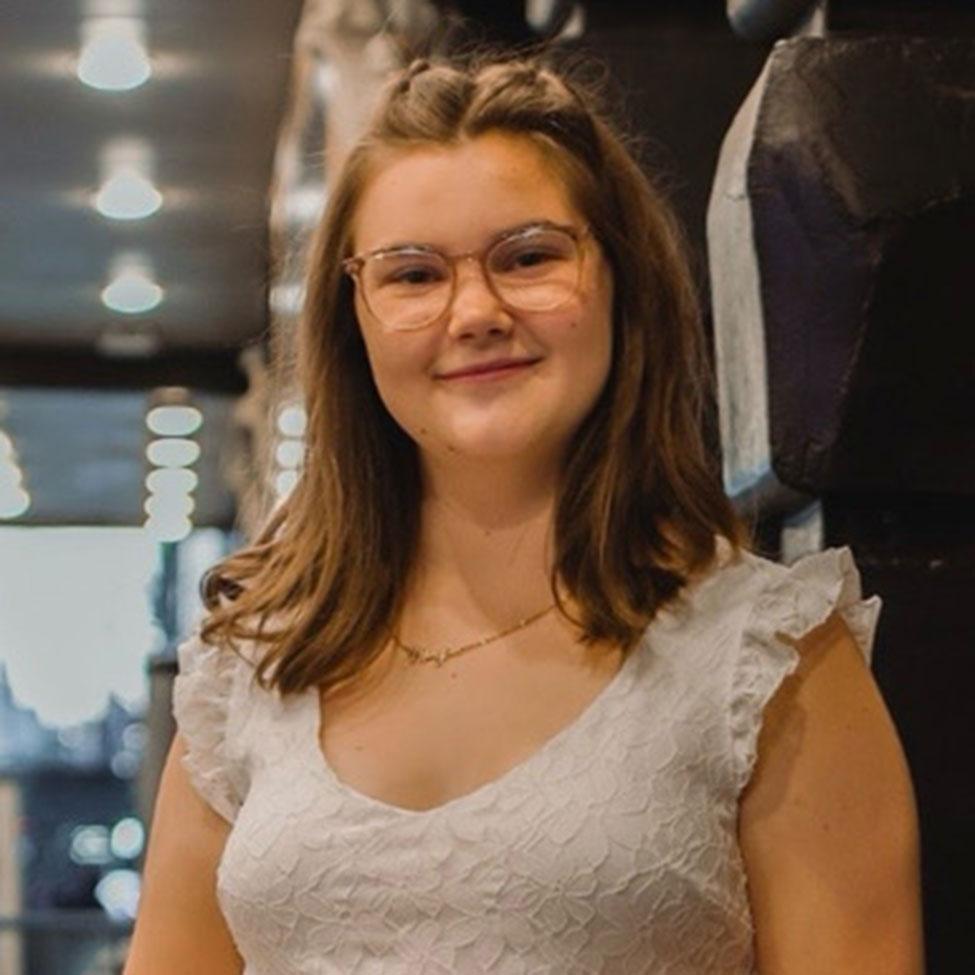
“As a sophomore at Pace University, I’m beyond thrilled and grateful to receive the Gilman Scholarship,” said Mikayla Fischer, who is studying abroad in Barcelona as part of the Sands International Performance Ensemble in Fall 2025 “This award is making it possible for me to study Theatre Directing in Sitges, Spain, a place full of artistic inspiration and cultural richness. Studying abroad has always been a dream of mine, and I’m so excited to grow as both a student and a storyteller through this incredible experience.”
Fischer’s opportunity is one example of how the Gilman Scholarship empowers students to pursue academic and artistic passions abroad, experiences that foster both personal and professional growth.
“The Gilman Scholarship is more than a financial award, it’s a gateway to global citizenship,” said Jonathan H. Hill, DPS, Interim Provost and Executive Vice President for Academic Affairs at Pace University. “We are incredibly proud of our students for earning this distinction. Their drive to engage with the world reflects Pace’s commitment to preparing students not only for meaningful careers but also for impactful lives. These experiences broaden their horizons, deepen their learning, and reinforce our role as a university of opportunity.”
Pace University hosts a vibrant international community, welcoming students from over 117 countries who collectively speak 98 languages. This global diversity enriches the academic environment and underscores the university's commitment to fostering cross-cultural understanding and global engagement. Through its Study Abroad program, Pace offers students the opportunity to study abroad in more than 30 countries, with over 75 approved semester and academic year programs.
The next Gilman application cycle will open in August 2025. Students interested in exploring scholarships for studying abroad are encouraged to connect with the Pace Study Abroad by email.
About Pace University
Since 1906, Pace University has been transforming the lives of its diverse students—academically, professionally, and socioeconomically. With campuses in New York City and Westchester County, Pace offers bachelor, master, and doctoral degree programs to 13,600 students in its College of Health Professions, Dyson College of Arts and Sciences, Elisabeth Haub School of Law, Lubin School of Business, Sands College of Performing Arts, School of Education, and Seidenberg School of Computer Science and Information Systems.
About the Gilman International Scholarship Program
The U.S. Department of State’s Benjamin A. Gilman International Scholarship Program (Gilman Program) supports students of limited financial means to study or intern abroad, providing them with skills critical to our national security and economic prosperity. The Gilman Program is a competitive, merit-based scholarship. To be eligible for the Gilman Program, applicants must be receiving a Federal Pell Grant during the time of application or provide proof that they will be receiving a Pell Grant during the term of their study abroad program or internship. The Institute of International Education has administered the program since its inception in 2001.
